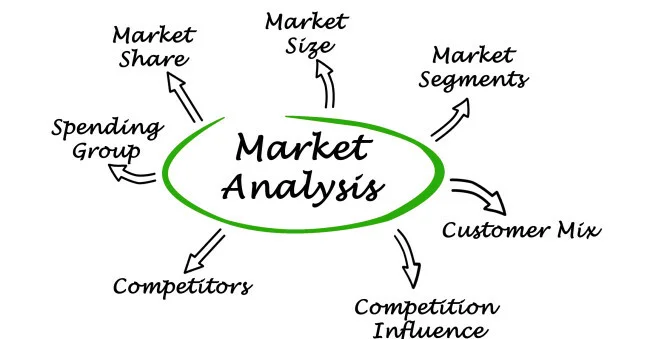In good times you should never blindly follow the herd. But this is even more relevant during bad times. As Albert Einstein famously said, "the definition of insanity is doing the same thing over and over again and expecting a different result". To develop lasting competitive advantages and provide new, unexpected value for your customers, it is critical to think and act differently from your competitors. You have to reinvent the game.
Expand Your Imagination
I urge others and push myself to continually learn and experience unique and strange new things. A great way to do both of these is through reading. I’ve seen a few kids walking around reading books lately and it’s given me hope that reading is not dead. The great benefit of reading is its inexpensive, you can do it anywhere, and it is a great way to stir the imagination.
Developing New Ideas
It is critical for small, medium, and large organizations to emphasize creative thinking in all areas of the business and at all levels. Successful creative thinking to develop new ideas to improve every aspect of the organization, will not happen by building cool work spaces, adding ping-pong tables or bean bag chairs, or fun team building exercises. Creative thinking happens when you train your entire team in the basics of how to develop new ideas, and ensure everyone understands how to avoid “killing ideas” and accepting and celebrating failure.
Deming's 14 Rules of Management
W. Edwards Deming, the father of quality management outlined 14 points he felt were essential to implementing and succeeding with Total Quality Management (TQM) practices. These 14 points first appeared in 1982 when Deming published Out of Crisis and are the foundation for the mindset and action an organization needs to achieve TQM success.
And companies like Toyota and Honda which followed these “best practices”, were decades ahead of their slow moving, reluctant-to-change competitors. Though Deming published these over35 years ago, every organization can gain great benefits from adopting a TQM mindset and purpose.
Keeping Up with the Quants
As Product Managers and marketing professionals, we must get comfortable with data. Data is critical to help us make sense of endless market information and drive decision making. No, we do not have to be full quants, high-level data analysts, or data scientists. However, we do need to be able to inform our data experts what we hope to understand from specific data requests and what decisions those insights will drive. The ability to be fluent with the proper analytical terminology and methods is critical to working with quantitative information.
Competitive Intelligence Systems
Creating a structured and disciplined competitive intelligence (CI) system within your organization is critical to leveraging market instights and keeping your competitors off-balance. Understanding what a competitive intelligence system is, why you need to develop a CI system, and the benefits will ensure you are not caught off-guard by unexpected competitive actions.
Competitive Analysis
One of the key responsibilities for Product Managers is to establish and maintain competitive advantage for their products in the marketplace. Good intelligence about the industry and the competition give Product Managers and the teams they work with the edge and expertise to strategize and act with purpose and clarity. The more Product Managers know about their industry and the competition, the greater credibility they have as leaders.
Kaizen Culture
Kaizen is a Japanese term typically translated to continuous improvement that covers the processes and theory for ongoing improvements. The theory (and term) was introduced to the West by Masaaki Imai in his legendary book, Kaizen: The Key to Japan’s Competitive Success. Imai outlined the following principles of kaizen:
Good processes bring good results
Go see for yourself to grasp the current situation
Speak with data, manage by facts
Take action to contain and correct root causes of problems
Work as a team
Kaizen is everybody’s business
Guerilla Tactics for Business
Guerrilla warfare is typically performed by a small force battling a larger, more highly equipped enemy. Guerrilla forces are typically comprised of small units that employ continuous raids, ambushes, and attacks on opponent’s weaknesses to put ongoing pressure on the larger force (most often psychological pressure to wear-down morale). In addition, the supports of local populations help sustain the smaller force and provide safety. Several examples of a guerrilla force succeeding against a much larger opponent are the Chinese Civil War, the Vietcong against the French and U.S., Castro’s Cuban revolution, the Sandista revolution, and jihadists fighting the Soviets in Afghanistan. Business leaders should learn and adapt guerilla tactics to their sales and marketing efforts to keep competitor off-balanced and customers continually excited about new, surprise offerings.
Industry 4.0
The rise of new technologies is changing traditional industries. As new trends gain momentum – VR, IoT, automation, robotics – traditional businesses are applying new technology to traditionally un-sexy products. From medium-sized manufacturing firms in Germany to family-owned private manufacturers in the Midwest, small to medium sized companies are out-innovating larger incumbents. Industry 4.0 is gaining steam and being adopted by the least-likely industries, far away from Silicon Valley. Industries from tractors, hand-tools, and front-end loaders are adopting new technologies to meet the needs of changing customers.










